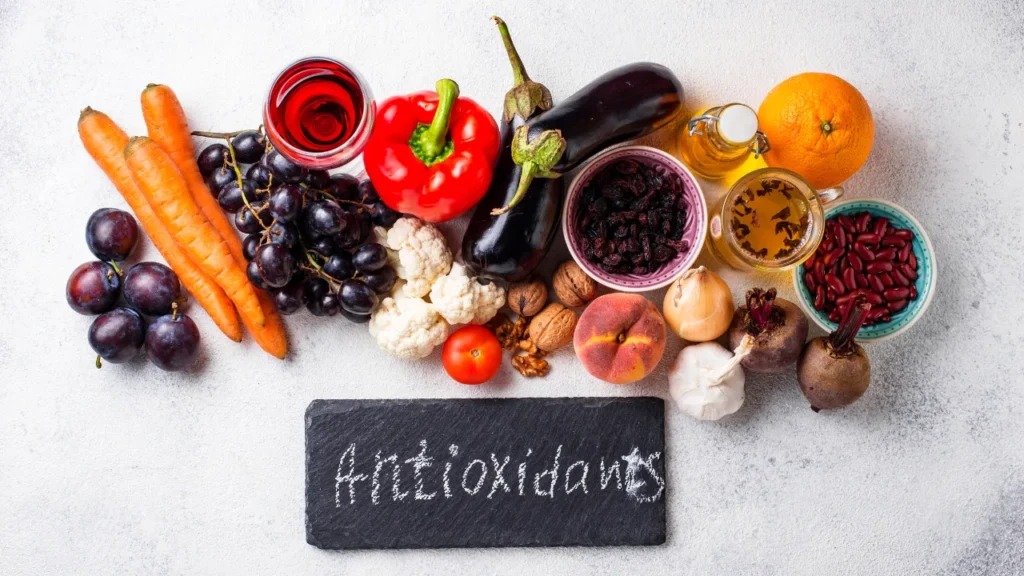Parsley (Petroselinum crispum) is a widely recognized herb known for its culinary applications and potential health benefits. Traditionally celebrated for its flavor-enhancing properties in dishes, parsley has gained attention for its nutritional profile and potential role as a nootropic supplement. This article delves into the chemistry, physiological mechanisms, and potential cognitive benefits of parsley, along with dosage guidelines, side effects, drug interactions, and considerations for specific health conditions.
You May Also Like:
CBD for Concentration: 3 Epic Benefits that Boost Your Focus
CBD for Concentration: The Productivity Hack for Energy and Focus
Parsley: Potential Nootropic Benefits, Dosage, Side Effects, Interactions, and Other Important Information About This Supplement is an original (NootropicsPlanet) article.
Sources of Parsley
Parsley is a versatile herb commonly used in various cuisines worldwide. It is rich in vitamins, minerals, and bioactive compounds that contribute to its health-promoting properties.
- Culinary Uses: Parsley is frequently used as a garnish, seasoning, and flavoring agent in salads, soups, and sauces. It can be consumed fresh, dried, or as an oil extract.
- Nutritional Profile: Fresh parsley is particularly high in vitamin K, vitamin C, and various antioxidants, making it a valuable addition to a healthy diet. It also contains notable amounts of vitamins A and B, folate, iron, and calcium.
While parsley can be easily incorporated into daily meals, parsley supplements, including extracts and oils, offer a more concentrated form of its beneficial compounds.
Promote Physical Health and Cognitive Wellness with Parsley Piert—Buy Today on Amazon!

Chemistry of Parsley
The active components of parsley contribute to its health benefits, particularly its potential nootropic effects. Key constituents include:
- Flavonoids: Parsley is rich in flavonoids such as apigenin, luteolin, and quercetin, which possess antioxidant and anti-inflammatory properties. These compounds help protect cells from oxidative stress and may contribute to cognitive health.
- Essential Oils: The essential oils of parsley, primarily derived from its leaves and seeds, contain compounds like myristicin and eugenol. These oils exhibit neuroprotective properties and may enhance mood and cognitive function.
- Vitamins and Minerals: Parsley is a source of several essential vitamins and minerals, particularly vitamin K, which plays a crucial role in brain health and cognitive function.
The unique combination of these active ingredients suggests that parsley may offer potential nootropic benefits by supporting brain health and cognitive performance.

Physiological Mechanisms of Parsley in the Body and Brain
Parsley’s potential nootropic benefits stem from its biochemical activities, particularly its role in neuroprotection, cognitive enhancement, and antioxidant defense.
- Antioxidant Defense: The flavonoids present in parsley exhibit potent antioxidant properties, helping to neutralize reactive oxygen species (ROS) that can cause cellular damage. Oxidative stress is a contributing factor to neurodegenerative diseases and cognitive decline, and the antioxidants in parsley may mitigate these effects, promoting cognitive health.
- Neuroprotection: Apigenin, one of the prominent flavonoids in parsley, has been shown to protect neurons from damage and promote neurogenesis (the formation of new neurons). Research indicates that apigenin may enhance cognitive function and support memory retention by modulating neurotransmitter activity.
- Anti-inflammatory Effects: Chronic inflammation in the brain is associated with cognitive decline and various neurological disorders. The anti-inflammatory properties of parsley’s active compounds may help reduce neuroinflammation, supporting overall brain health.
- Mood Regulation: The essential oils in parsley, particularly myristicin and eugenol, have been linked to improved mood and stress reduction. By influencing neurotransmitter systems, these compounds may help alleviate anxiety and enhance cognitive clarity.
- Enhanced Blood Circulation: Parsley is known to promote healthy circulation, which is vital for delivering oxygen and nutrients to the brain. Improved blood flow can enhance cognitive function and mental alertness, further establishing parsley’s potential as a nootropic supplement.
Support Whole-Body Health and Cognitive Clarity with Parsley Piert—Order Now from Amazon!

Nootropic Benefits of Parsley
The potential cognitive benefits of parsley, driven by its unique composition, make it an intriguing candidate for nootropic supplementation. Here are some of parsley’s possible nootropic benefits:
- Cognitive Enhancement: The antioxidants and anti-inflammatory compounds in parsley may enhance overall cognitive function, particularly in tasks requiring memory, focus, and mental clarity.
- Neuroprotection Against Aging: Regular consumption of parsley may help protect against age-related cognitive decline by combating oxidative stress and inflammation, potentially reducing the risk of neurodegenerative diseases like Alzheimer’s and Parkinson’s.
- Improved Mood and Mental Clarity: Parsley’s essential oils may contribute to mood enhancement and cognitive clarity, especially in stressful situations. This effect could be beneficial for individuals dealing with anxiety or depression.
- Memory Retention: The neuroprotective properties of apigenin in parsley may support memory formation and retention, making it a valuable supplement for students or individuals seeking to improve their learning capabilities.

Dosage and Supplementation Guidelines
While parsley can be enjoyed as part of a balanced diet, those seeking specific nootropic benefits may consider supplementation. The following dosage guidelines provide insights into effective and safe use:
- General Dosage: For culinary use, adding fresh parsley to meals is an excellent way to incorporate its benefits. However, for those opting for concentrated supplements, a typical dosage may range from 500 mg to 2,000 mg of parsley extract daily. This range is based on preliminary studies suggesting efficacy without significant side effects.
- Parsley Oil: Essential oil formulations may be more concentrated. A few drops (approximately 1-2 drops) of parsley essential oil may be used in aromatherapy or diluted with a carrier oil for topical applications.
- Standardized Extracts: When using standardized parsley extracts, following the manufacturer’s guidelines is crucial, as concentrations may vary. Always consult a healthcare professional to determine the appropriate dosage tailored to individual health needs.
- Safety and Monitoring: It is advisable to start with lower doses and gradually increase them while monitoring for any adverse effects. Individual responses to supplements can vary, and adjustments may be necessary based on personal experiences.
Parsley Piert for Complete Body and Brain Wellness—Shop Amazon’s Best Supplements Now!

Side Effects and Safety
Parsley is generally considered safe for most individuals when consumed in culinary amounts. However, higher doses, particularly from supplements or essential oils, may lead to some side effects:
- Allergic Reactions: Some individuals may experience allergic reactions to parsley, particularly those sensitive to plants in the Apiaceae family (e.g., carrots, celery). Symptoms may include skin rashes, itching, or gastrointestinal discomfort.
- Digestive Issues: High doses of parsley supplements may cause gastrointestinal upset, including nausea or diarrhea. Reducing the dosage or discontinuing use may alleviate these symptoms.
- Photosensitivity: Parsley, particularly its essential oil, may increase sensitivity to sunlight in some individuals, leading to an increased risk of sunburn. Caution is advised when using parsley oil topically, especially before sun exposure.
- Pregnancy and Breastfeeding: Pregnant or breastfeeding women should consult their healthcare provider before using parsley supplements, as high doses may have unintended effects on pregnancy and lactation.
Interactions with Other Supplements and Medications
When considering parsley as a supplement, it is essential to be aware of potential interactions with other medications and supplements:
- Anticoagulants and Antiplatelet Drugs: Parsley contains compounds that may affect blood clotting. Therefore, individuals taking anticoagulant medications (e.g., warfarin) or antiplatelet drugs should consult their healthcare provider before using parsley supplements to avoid potential interactions.
- Diuretics: Parsley is known for its diuretic properties, which may enhance the effects of diuretic medications. This interaction can lead to excessive fluid loss and electrolyte imbalances, necessitating careful monitoring.
- Other Nootropics: Parsley can be safely combined with other nootropic supplements, such as Ginkgo biloba or Bacopa monnieri, to enhance cognitive function. However, it is crucial to monitor the overall dosage to avoid overstimulation.
- Hormonal Medications: There is some evidence suggesting that parsley may influence hormone levels, which could interact with hormonal medications. Individuals on hormonal treatments should discuss parsley supplementation with their healthcare provider.
Risks for Individuals with Certain Health Conditions
Certain health conditions may necessitate caution when using parsley supplements. These include:
- Kidney Disease: Parsley’s diuretic effects can be problematic for individuals with kidney disease, as they may exacerbate fluid loss and electrolyte imbalances. Consultation with a healthcare provider is essential.
- Liver Conditions: Individuals with liver disease should approach parsley supplementation with caution, as the liver metabolizes its active compounds. While moderate consumption is generally safe, high doses should be avoided unless monitored by a healthcare professional.
- Bleeding Disorders: Due to its potential anticoagulant effects, individuals with bleeding disorders or those undergoing surgery should avoid high doses of parsley supplements, as they may increase the risk of bleeding.
Support Body Wellness and Brain Function with Parsley Piert—Order Now on Amazon!

Conclusion:
Should You Consider Parsley as a Nootropic?
Parsley offers a unique blend of nutrients and bioactive compounds that contribute to its potential as a nootropic supplement. Its antioxidant, anti-inflammatory, and neuroprotective properties suggest it may enhance cognitive function, promote memory retention, and support overall brain health. However, while the current research on parsley as a nootropic is promising, more studies are needed to confirm its efficacy for cognitive enhancement.
As with any supplement, it is vital to consult with a healthcare professional before incorporating parsley into your health regimen, particularly if you have pre-existing health conditions or are taking medications that may interact with this herb. By understanding the potential benefits, dosing guidelines, side effects, and interactions associated with parsley, individuals can make informed decisions about its use as a supplement.
In summary, parsley is a versatile and nutritious herb that not only enhances culinary dishes but may also support cognitive function and brain health. With careful consideration of dosage and potential interactions, parsley can be a valuable addition to a holistic approach to cognitive wellness.

References:
- Parsley: a review of ethnopharmacology, phytochemistry and biological activities. Retrieved from: https://pubmed.ncbi.nlm.nih.gov/24660617/
- Bioactive compounds of parsley (Petroselinum crispum), chives (Allium schoenoprasum L) and their mixture (Brazilian cheiro-verde) as promising antioxidant and anti-cholesterol oxidation agents in a food system. Retrieved from: https://www.sciencedirect.com/science/article/abs/pii/S096399692100764X
- Bioactive Properties and Phenolic Compound Profiles of Turnip-Rooted, Plain-Leafed and Curly-Leafed Parsley Cultivars. Retrieved from: https://pmc.ncbi.nlm.nih.gov/articles/PMC7730503/
- 21 Impressive Health Benefits and Uses of Parsley. Retrieved from: https://www.medicinenet.com/21_impressive_health_benefits_and_uses_of_parsley/article.htm
Important Note: The information contained in this article is for general informational purposes only, and should not be construed as health or medical advice, nor is it intended to diagnose, prevent, treat, or cure any disease or health condition. Before embarking on any diet, fitness regimen, or program of nutritional supplementation, it is advisable to consult your healthcare professional in order to determine its safety and probable efficacy in terms of your individual state of health.
Regarding Nutritional Supplements Or Other Non-Prescription Health Products: If any nutritional supplements or other non-prescription health products are mentioned in the foregoing article, any claims or statements made about them have not been evaluated by the U.S. Food and Drug Administration, and such nutritional supplements or other health products are not intended to diagnose, treat, cure, or prevent any disease.


